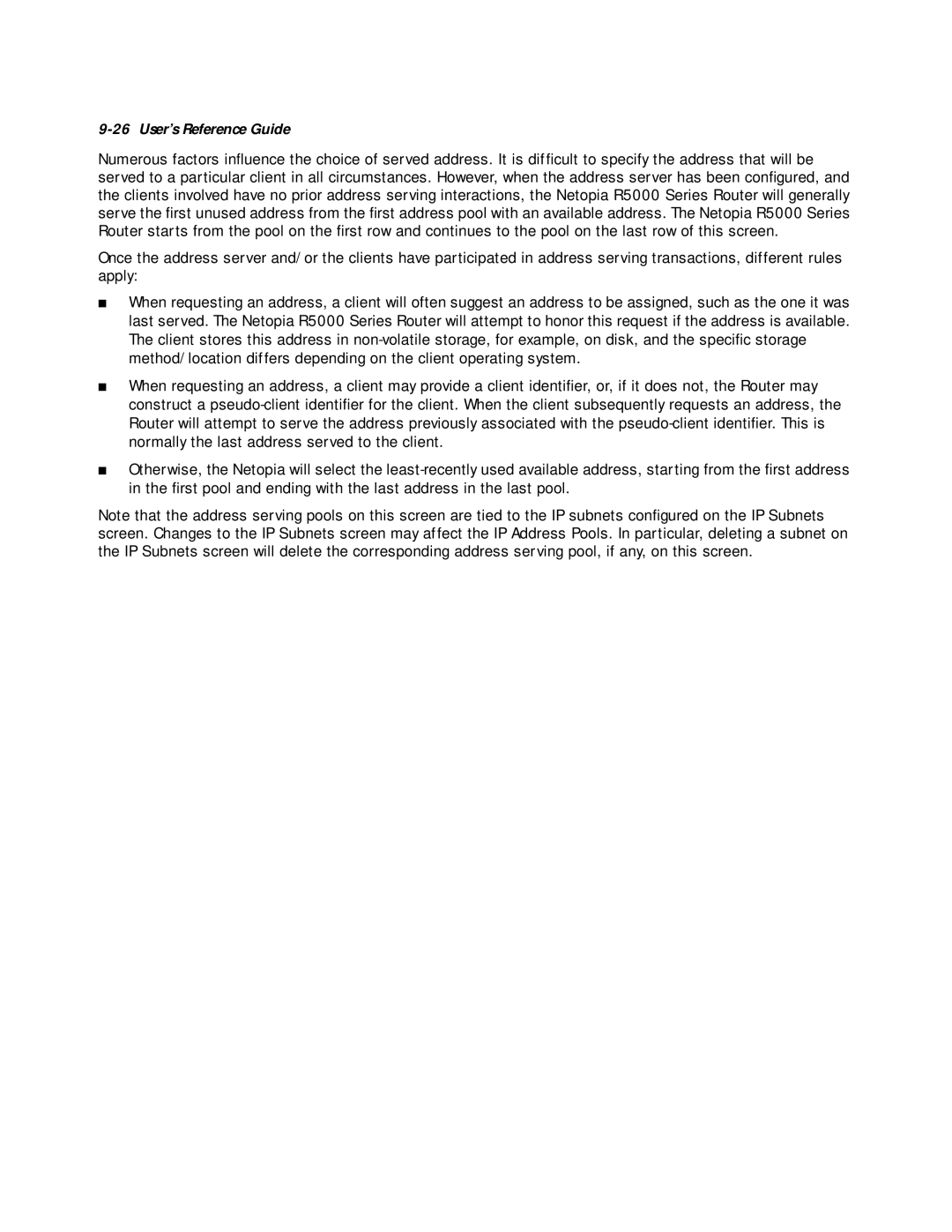9-26 User’s Reference Guide
Numerous factors influence the choice of served address. It is difficult to specify the address that will be served to a particular client in all circumstances. However, when the address server has been configured, and the clients involved have no prior address serving interactions, the Netopia R5000 Series Router will generally serve the first unused address from the first address pool with an available address. The Netopia R5000 Series Router starts from the pool on the first row and continues to the pool on the last row of this screen.
Once the address server and/or the clients have participated in address serving transactions, different rules apply:
■When requesting an address, a client will often suggest an address to be assigned, such as the one it was last served. The Netopia R5000 Series Router will attempt to honor this request if the address is available. The client stores this address in
■When requesting an address, a client may provide a client identifier, or, if it does not, the Router may construct a
■Otherwise, the Netopia will select the
Note that the address serving pools on this screen are tied to the IP subnets configured on the IP Subnets screen. Changes to the IP Subnets screen may affect the IP Address Pools. In particular, deleting a subnet on the IP Subnets screen will delete the corresponding address serving pool, if any, on this screen.
